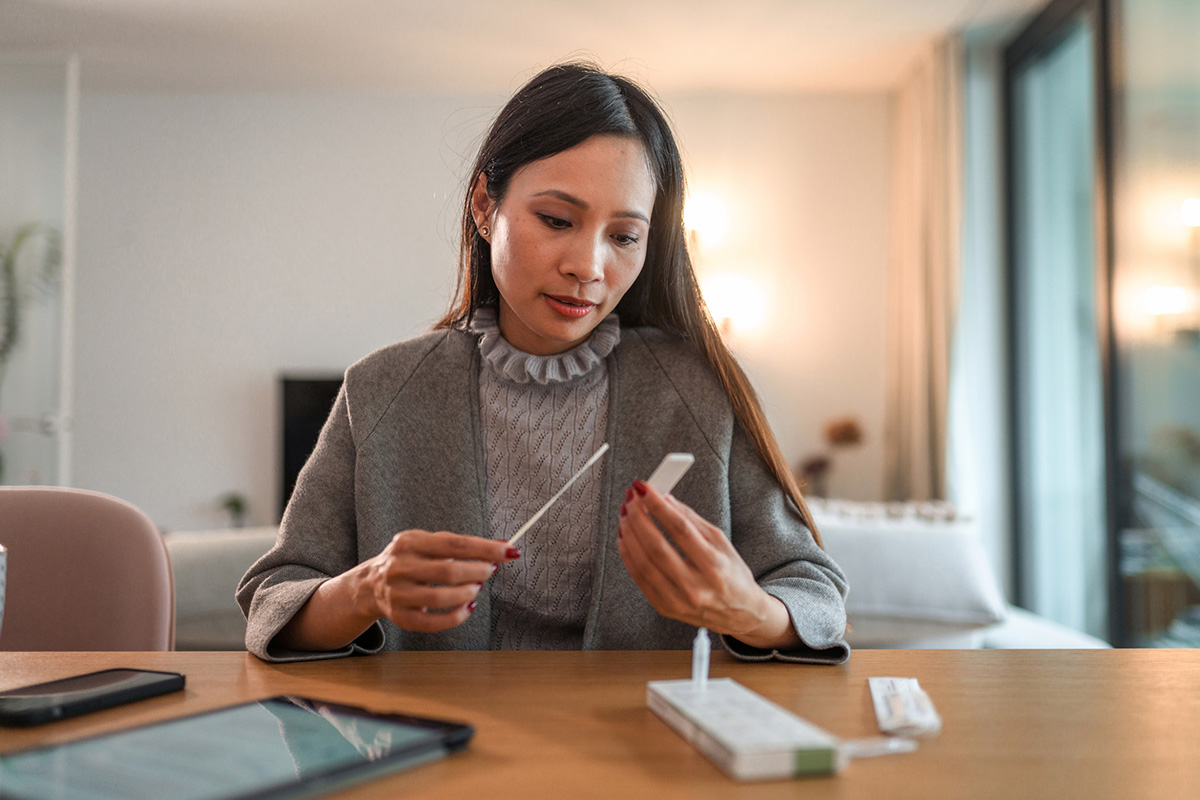Precautions, Testing, and Treatment for COVID‑19

Most people infected with COVID-19 have only mild symptoms (like fever, cough, headache, or muscle pain), or might not have any symptoms at all. This is especially true for those who have been fully vaccinated and have received their booster. It’s also especially true for the Omicron variant.
If you have only minor or no symptoms, you will probably not need any medical consultation or care. And with the extreme stress that the pandemic has placed on our health care system, it’s best to avoid adding to that burden if you don’t have to.
But if you’re concerned about your symptoms or your risk of severe disease, make an appointment with your primary care doctor. And seek emergency medical care if you have:
Trouble breathing
Persistent pain or pressure in your chest
Inability to wake up or stay awake
Inability to drink fluids
Pale, gray, or blue-colored skin, lips, or nail beds (depending on your skin tone)
The Best Ways to Protect Yourself and Your Loved Ones
I can’t say this often or emphatically enough: If you haven’t been vaccinated against COVID-19, please do it now. If you’ve been vaccinated but haven’t gotten your booster, please do that now. If other people in your home aren’t vaccinated and/or boosted, please encourage them to take care of this.
According to the CDC, people who are unvaccinated are 21 times more likely to die from a COVID-19 infection than those who have received a primary vaccination series and a booster. The next life the vaccines save could be your own. Or the life of one of your parents. Or the life a friend who’s immunocompromised and can’t benefit from the protection of the vaccine.
We don’t know what the future holds. But as long as COVID-19 keeps spreading, some health precautions will be needed and dangerous new variants could evolve. So to help bring this pandemic to an end, please get vaccinated, keep getting boosters as recommended, and follow responsible precautions — like wearing a mask in appropriate situations.




